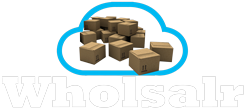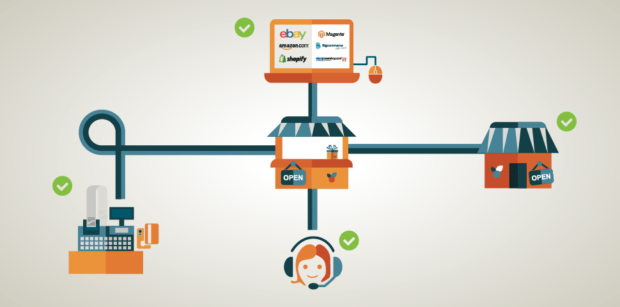The hardest decision you might for your business is choosing whether to sell your products online or offline. This decision can influence your choices related to hiring employees and your dealing with the consumers. Choosing between conducting your sales online through a multi channel eCommerce store, or conducting your sales in a traditional bricks-and-mortar location is indeed a tough job to do. This decision will also influence the way you will sell your products. Therefore, let’s discuss the pros and cons to both which would help you make a wise decision according to the nature of your business.
Online and Offine Retail
Online retail is getting popular and is catching attention due to its fast ways in targeting audience and increasing sales. However many people still prefer to go to stores and shop there instead of buying from online stores. Hence there is still a great trend of retailers. If you are thinking of going for online retail for your brick and mortar business, then you can surely employ the wide range of online platforms for selling your products. This multi channel eCommerce is bound to increase your sales. This decision relies on the nature of your business, the product you sell and your targeted market.
Pros of Online Retail
There is a diverse range of benefits of online retail which are given below:
- Setting up an online store does not require huge startup costs. In contrast, a bricks and mortar store needs a large physical space for which you need to pay. This can lead to low capital investment.
- Consumers encourage the ease and comfort with a multi channel eCommerce online store as they can shop from home and can look for their desired items. It saves time as the products get delivered to their door.4. It is great from a retailer’s point of view as you can get accurate feedback from the customers. A multi channel eCommerce platform let you access the feedback data which can help you improve your marketing.
Cons of Online Retail
Although an online store can be a simpler way to drive the customers and sales but not having a space can make it more difficult to attract customers through to your store.
- You need have a big marketing budget and defined strategy all the time. You will need to invest more resources and time to marketing.
- Relationship and bonding with clients might become difficult as there’s no face to face interaction. It will be hard to build positive brand image.
Pros of Offline Retail
The advantages of offline retail are numerous:
- It is the most reliable and popular shopping channel for consumers and allow for great customer experience.
- With a bricks-and-mortar store, you can build an image of your brand in a wonderfully creative way.
- Having a store location makes you visible to your target market and can build your brand locally.
- For an eCommerce retailer, having a bricks and mortar store is a brilliant way to express their brand, and interact with customers.
Cons of Offline Retail
- Higher setup and running costs are needed. These stores have higher running costs than online retailers because owner has to pay for electricity, water, rent and more every month. This allows less room for capital investment and your funds can finish quickly if you’re not careful with the finances.
- Having a bricks-and-mortar stores can go against you if you do Not pick the correct location. It can affect the success of your business tremendously. Even if your product is great, a bad location of your store can be harmful. A competitor present next door can attract all your potential customers.
You don’t Have to Choose
Multi channel eCommerce allows you not to have to choose between online and offline retail by blurring the boundaries between the both. It allows you to own a physical store, but yet use online platforms to boost the sales. Choosing between online and offline retail is not simple, hence now you don’t have to choose at all. The recent trend of traditional retailers opening eCommerce stores, and online retailers buying physical locations has made the multi channel eCommerce technology such as Wholsalr possible.
The lines between online and offline retail are now getting blurred. You can use various modern technologies like iBeacons to interact online with your customers present in-store. You can offer them discounts depending on the products. Now, all the popular social media networks like Facebook track customers across the digital world and attract them into physical stores. The most efficient Digital POS systems provides retailers with the important and crucial customer data that eCommerce businesses have been enjoying in the past.
The Future of Multi Channel eCommerce
The future belongs to Multi Channel eCommerce as many customers are interacting with retailers across various platforms, both physical and digital. They are experiencing both. It’s offering opportunities to your eCommerce customers, and get more product information online, yet successfully meeting the customer’s expectations at every level.
It’s also now easier for online retailers to open physical stores. As an eCommerce retailer, you could open a small shop and get involved with local markets. As an offline retailer, you can start selling online through platforms like eBay.
To summarize it all, although choosing between offline and online retail is still a challenge but multi channel eCommerce has solved the problem to a larger extent. However, the biggest and dreadliest challenge for the traditional retailers might be to evaluate how they can begin to create a multi channel strategy. They might feel pressurized to meet the changing expectations of consumers and to show more efficiency just as the online retail. The offline retailers might get worried about the speed of delivery and the comfort of their customers. Whereas, the online retailers might miss the physical store. It’s not feasible for every retailer at the moment to switch to multi channel eCommerce but it’s a thing that must be considered.

